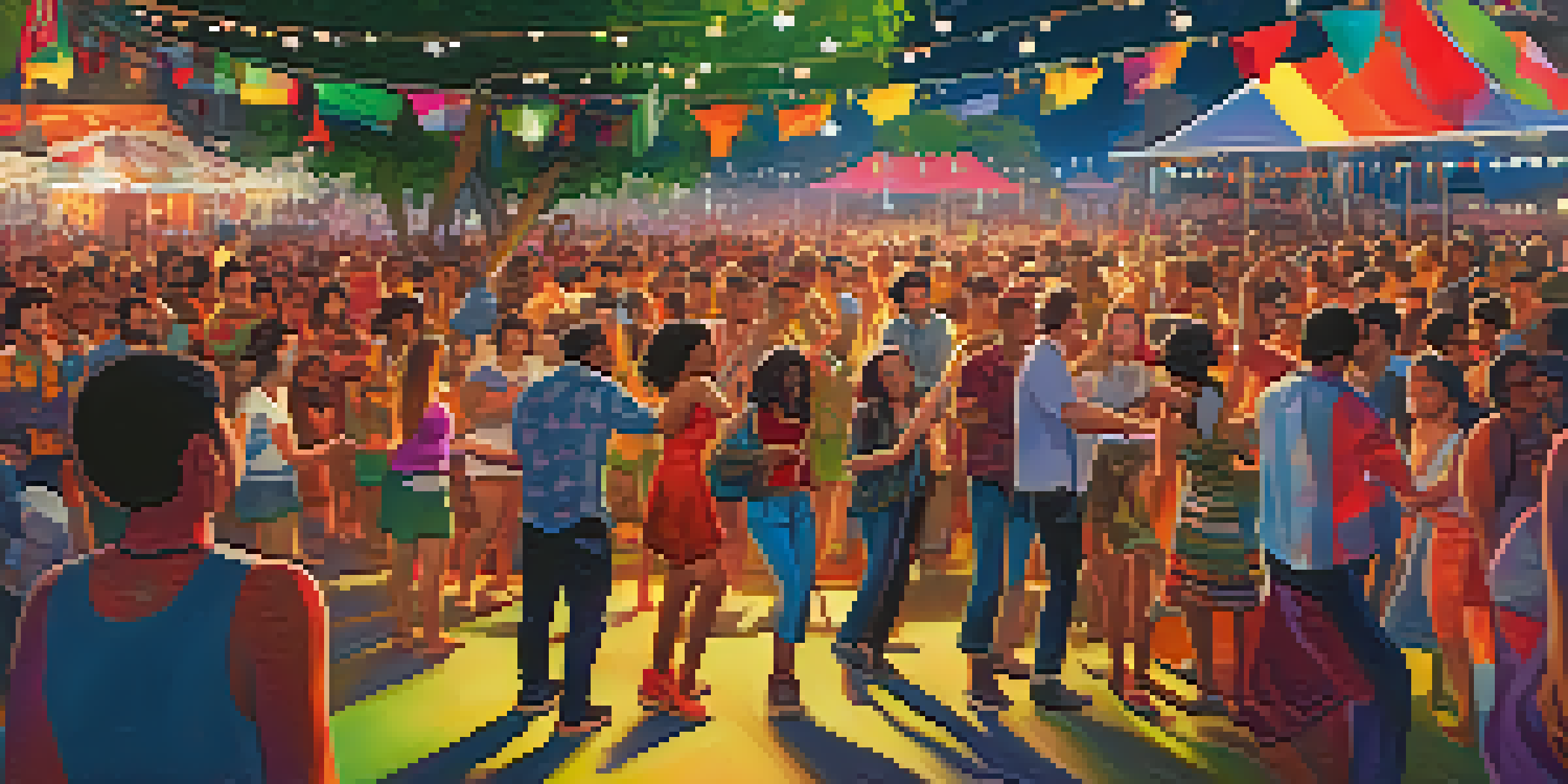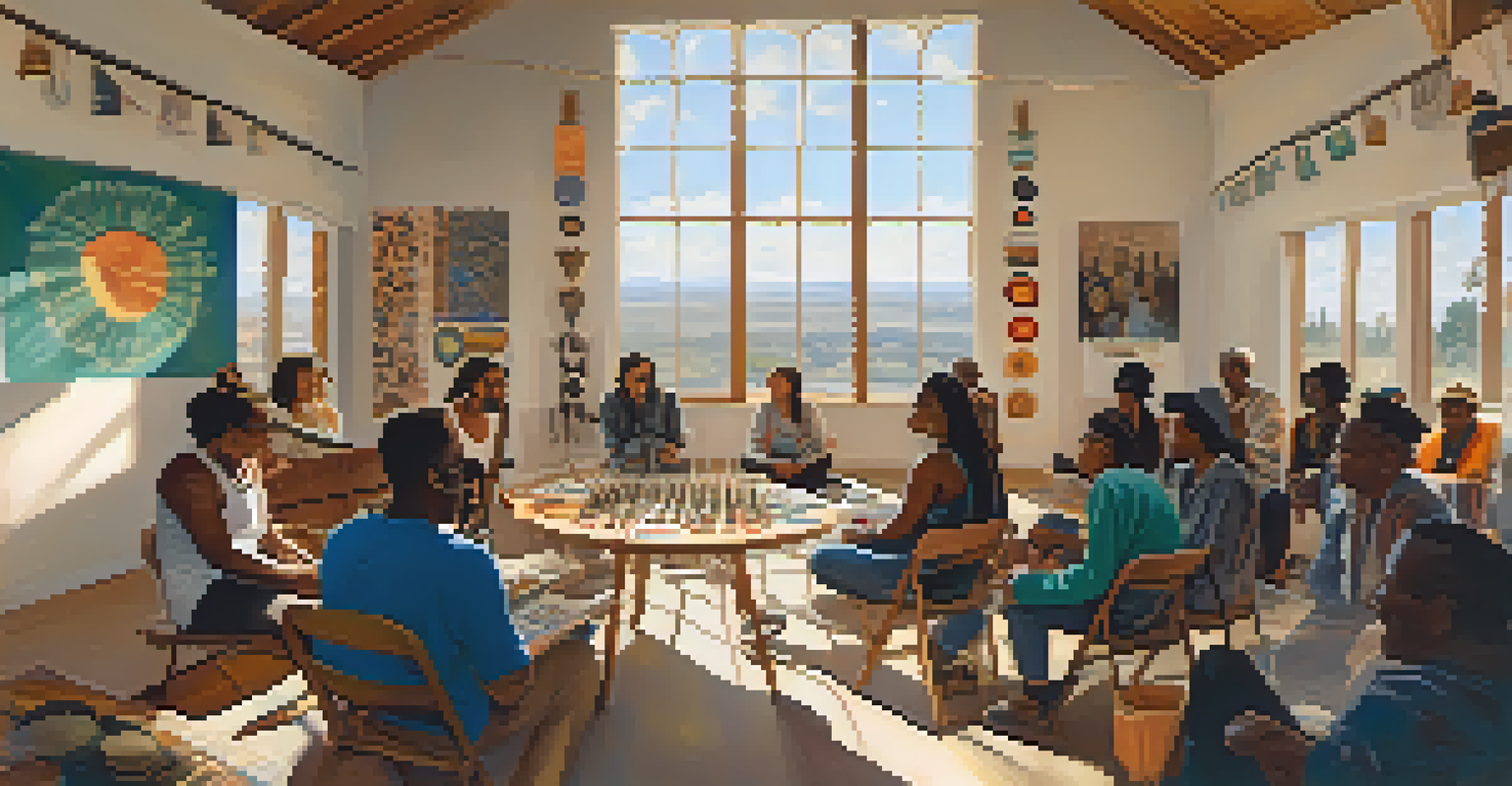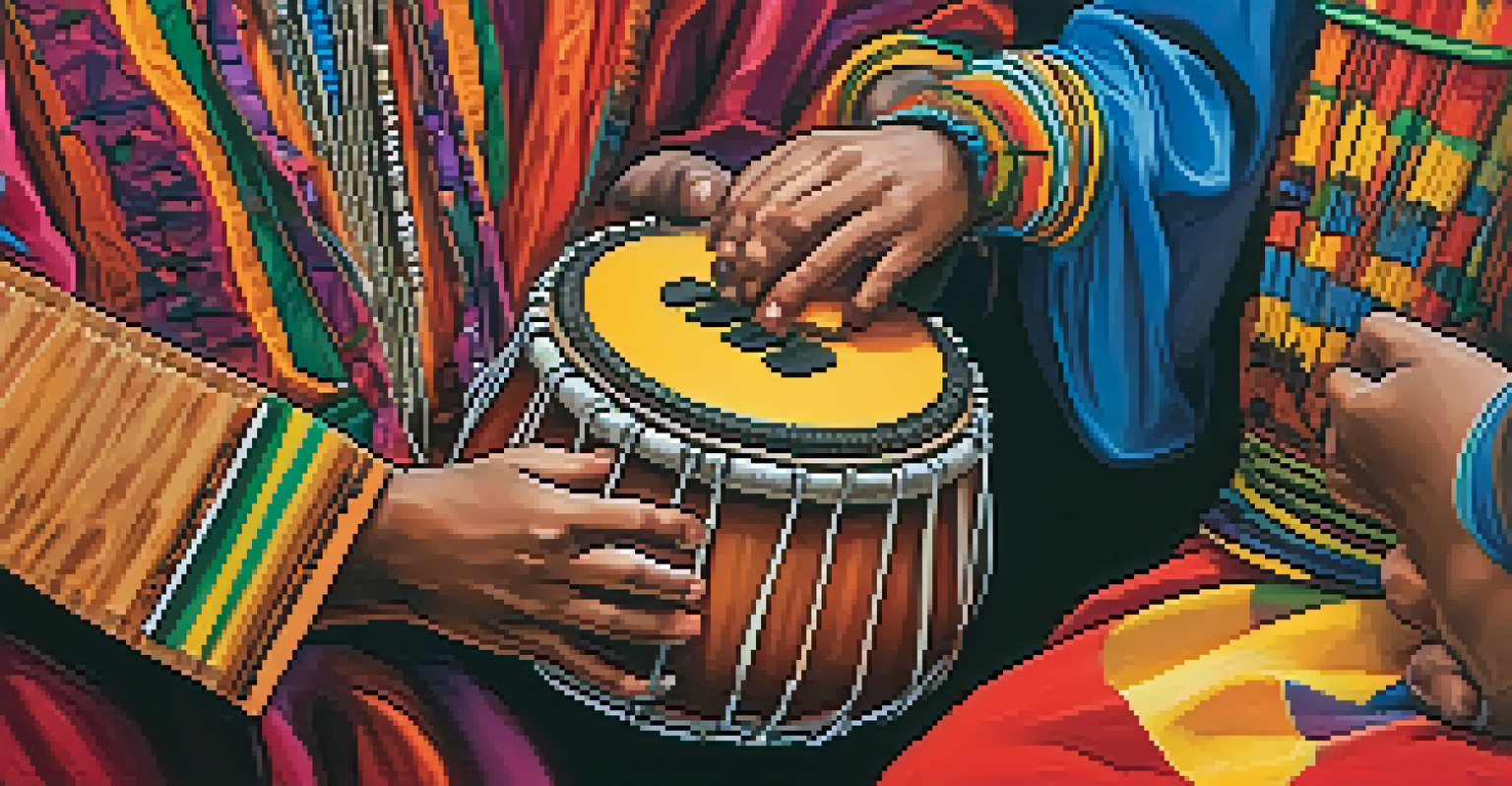The Role of Music Festivals in Cultural Appropriation Issues

Understanding Cultural Appropriation in Music
Cultural appropriation occurs when elements of one culture are taken by another, often without understanding or respect. This is particularly relevant in music, where genres can be influenced by diverse cultures. For instance, many popular music festivals feature artists from various backgrounds, raising questions about ownership and representation.
Cultural appropriation is the act of taking or using elements from a culture without permission or understanding, often in a way that disregards the original meaning or significance.
At music festivals, the blending of different musical styles can create vibrant experiences, but it can also lead to misunderstandings. When a dominant culture adopts aspects of a marginalized culture, it can overshadow the original creators. This dynamic often leads to conversations about who gets to share and profit from these cultural expressions.
Understanding cultural appropriation is crucial for festival organizers and attendees alike. It encourages a deeper appreciation of the music and traditions being showcased. By fostering awareness, festivals can become platforms for genuine cultural exchange rather than exploitation.
The Impact of Music Festivals on Cultural Exchange
Music festivals serve as melting pots of cultures, offering a space for diverse musical traditions to collide. They provide a unique opportunity for artists to share their heritage while engaging with global audiences. This cultural exchange can enrich attendees’ experiences, allowing them to discover new sounds and stories.

However, this exchange must be approached with care. When festivals highlight only certain cultural elements, it can lead to tokenism. For example, featuring a single Indigenous artist in a sea of mainstream acts may inadvertently reduce their rich culture to a mere spectacle.
Cultural Appropriation in Festivals
Cultural appropriation in music festivals highlights the need for awareness and respect towards the origins of diverse cultural elements.
To truly honor cultural exchange, festivals should prioritize inclusivity and representation. This means not only showcasing diverse artists but also providing them with platforms to tell their own stories. By doing so, festivals can help ensure that cultural exchange is meaningful and respectful.
Examples of Cultural Appropriation in Festivals
There have been several instances of cultural appropriation at music festivals that sparked significant conversations. For instance, when non-Indigenous performers adopt Native American attire during performances, it raises eyebrows and concerns. This practice can trivialize the deep significance of those garments and the cultures from which they originate.
Music is a universal language, but it must be spoken with respect for the cultures that created it.
Another example can be seen in the way some festivals market certain genres, like reggae or hip-hop, without acknowledging their roots in African and African American experiences. This lack of context can lead to a superficial understanding of these genres among festival-goers.
These examples underscore the importance of education and awareness in music festivals. Organizers can play a pivotal role in ensuring that all cultural representations are approached with sensitivity and respect, fostering a more inclusive atmosphere.
Festival Organizers’ Responsibilities
Festival organizers hold significant power when it comes to cultural representation. They can choose which artists to feature and how to present various cultures to the audience. This responsibility calls for a commitment to ethical practices that respect the origins of the music and cultural elements.
One way organizers can fulfill this responsibility is by consulting with cultural representatives and community leaders. By doing so, they can gain insights that help them create authentic experiences rather than superficial representations. This collaboration can also help elevate underrepresented voices in the music scene.
Role of Organizers and Artists
Festival organizers and artists must collaborate and educate audiences to ensure cultural representations are authentic and respectful.
Moreover, organizers should educate attendees about the cultural contexts of the performances. Providing information through workshops or panels can enhance the festival experience and promote understanding among audiences, encouraging respectful engagement with different cultures.
The Role of Artists in Cultural Appropriation
Artists are often at the forefront of cultural appropriation discussions, given their visibility and influence. When they draw inspiration from other cultures, it’s essential that they do so thoughtfully and respectfully. Artists can either contribute to cultural appreciation or perpetuate appropriation, depending on their approach.
For instance, artists who take the time to research and engage with the cultures they’re drawing from can create meaningful connections. This not only enriches their own work but also educates their audience about the cultures involved. Conversely, those who exploit cultural elements for commercial gain without crediting their origins may face backlash.
Ultimately, artists have a unique opportunity to use their platforms for good. By embracing cultural diversity and promoting understanding, they can help shape a more respectful music industry that honors the contributions of all cultures.
Audience Engagement and Education
As attendees of music festivals, audiences play a crucial role in addressing cultural appropriation. Their engagement with the music and artists can either reinforce or challenge appropriation practices. An informed audience is more likely to appreciate the nuances of cultural representation and advocate for ethical practices.
Education is key to fostering this awareness. Festivals can provide resources and programming that highlight the cultural backgrounds of the artists performing. This not only enriches the audience’s experience but also encourages them to think critically about the music they enjoy.
Importance of Audience Engagement
Attendees play a vital role in promoting ethical practices by supporting festivals and artists that prioritize cultural sensitivity and understanding.
Additionally, audiences can support artists and festivals that prioritize cultural sensitivity. By choosing to attend events that celebrate authentic cultural expressions, attendees can help create a demand for respectful representation in the music industry.
Moving Towards Cultural Respect in Festivals
As music festivals continue to grow in popularity, the conversation around cultural appropriation is becoming increasingly important. Moving forward, the goal should be to create spaces that respect and honor diverse cultures rather than exploit them. This requires collaboration among organizers, artists, and audiences.
By fostering an environment of respect and understanding, festivals can lead the way in promoting cultural appreciation. This might involve implementing policies that prioritize representation, transparency, and education. Such initiatives can help ensure that all cultures are celebrated authentically.

Ultimately, the music festival experience has the potential to be transformative. By addressing cultural appropriation proactively, festivals can become powerful platforms for cultural exchange, understanding, and respect, enriching the lives of both artists and attendees.